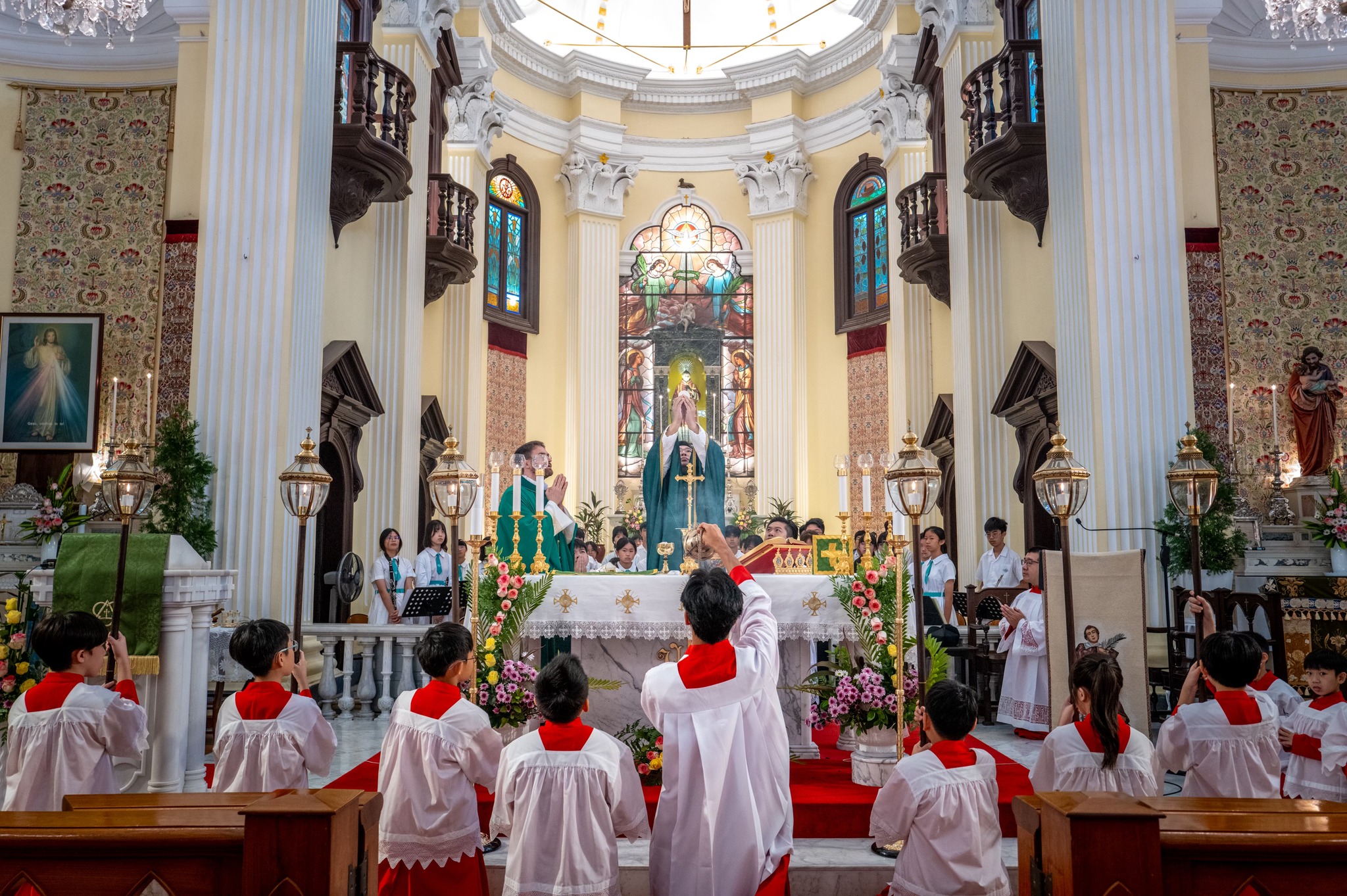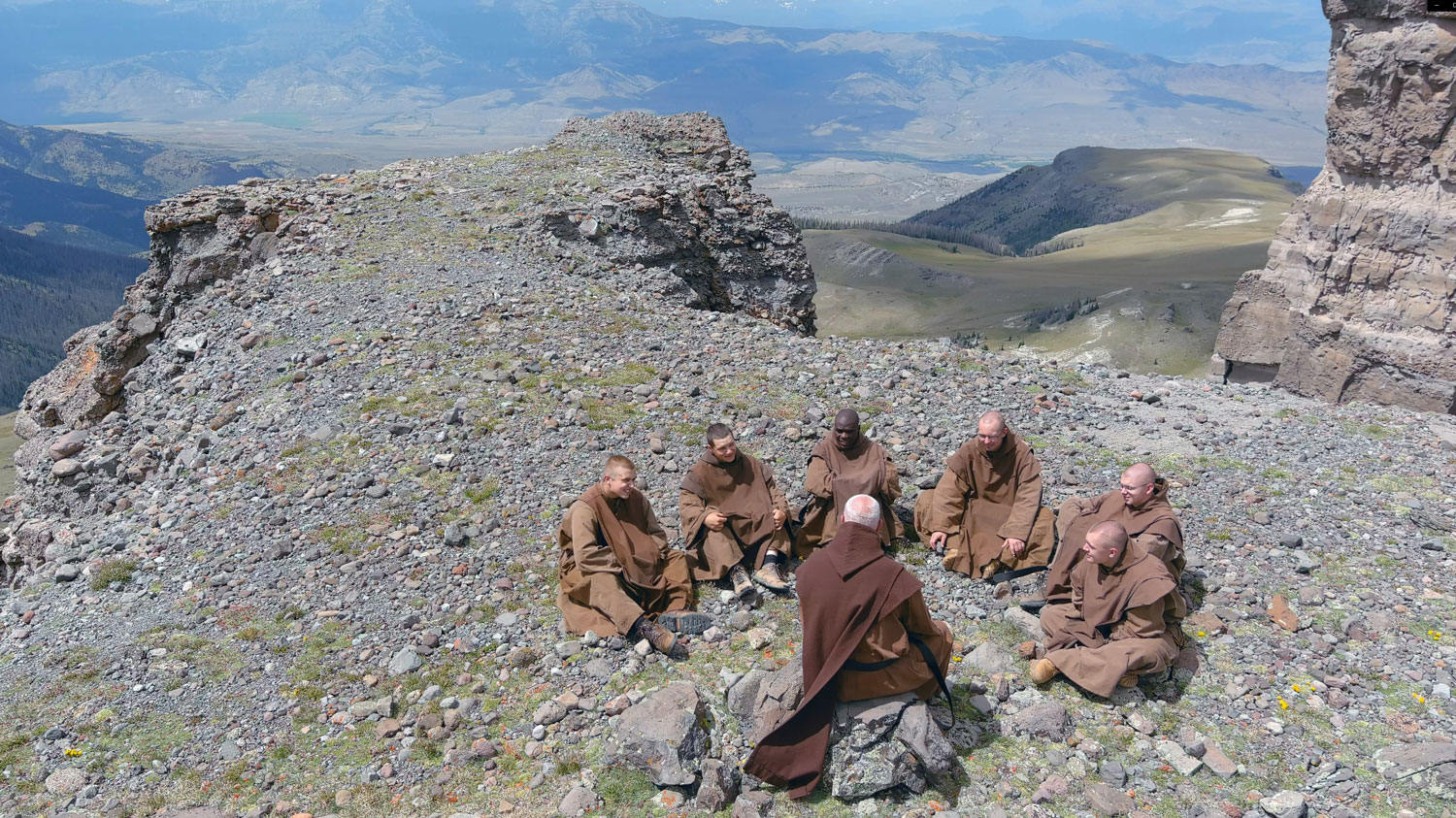FAUSTO GOMEZ OP
Many Christians still think that holiness is for the saints, those extraordinary women and men closest to Christ who is the Holy One. Holiness is not for them. Wrong! All the followers of Christ, in particular, are called to holiness, to become saints. Jesus tells us all: Be holy as your Father is holy.
The essential elements of holiness are permanent. They come, especially, from the very time of Jesus, who is God’s face of holiness and our way to holiness: He loves all unconditionally and the needy in a special way. He is intimately united to God in deepest prayer, and He always does God’s will (cf. Vatican II, LG, 42). The classical elements of the ladder of holiness: “Faith-filled prayer, meditation on the Word of God, celebration of the Mass, Eucharistic adoration, sacramental reconciliation, works of charity, community life, and missionary outreach” (Pope Francis).
In his inspiring Apostolic Exhortation Gaudete et Exsultate (GE), or Rejoice and Be Glad (March 19, 2018),Pope Francis tells us that he only wants to “re-propose the call to holiness in a practical way for our time,” and to call our attention to certain significant aspects of holiness today.
In Rejoice and Be Glad, Pope Francis invites us all to hear God’s call to holiness. As Vatican II repeats often, we are all called to holiness. Our holy Church, Teacher and Mother, presents to us the models to follow: the canonized saints and the anonymous ones, which may include our mothers, grandmothers and other loved ones. All the saints through all times point to and follow Jesus, starting with Mary Our Lady (cf. GE, 3, 124 & 176), the apostles, the martyrs, the virgins, the confessors, ordinary people living extraordinary lives of fidelity and service. We can – and ought to try earnestly – to be among them. Is it hard to be a saint? Convert Leon Bloy answers: “One step beyond mediocrity and you are a saint.”
To be holy – only possible with God’s grace and love – is possible: our cooperation is “essential” (St. Francis of Sales (The Love of God). We need determined determination. We have to really want to be holy: “to want it, to want it, to want it” (St Thomas Aquinas). “I will, I want, with God’s blessings, to be holy” (Saint Teresa of Calcutta). After all, to be holy means really to do God’s will, that is, to fulfill the commandments which are centered on love. Holiness simply means: to do what we have to do every day with love; to put a little love in everything we do – big or small. Let us be sure of this: holiness means happiness here and hereafter.
At its core, holiness consists in loving union with Christ: union with the Crucified and Risen Lord. It is letting the Blessed Trinity – that dwell in us, if we love Jesus – work in us through divine grace, which purifies, elevates, and enlightens us.
__________________
ONE STEP BEYOND MEDIOCRITY
AND YOU ARE A SAINT
_________
Holiness means to imitate Jesus, the virtuous One. All virtues, rooted in divine grace, are connected among themselves, and centered on love, and working through faithful and hopeful love. The agent of holiness is the Holy Spirit, who leads us on the way of love. Beside the theological virtues of faith, hope and charity, the infused moral virtues are also signs and means of holiness, especially, humility, prayer, mercy, joy, patience, meekness, justice, truthfulness, temperance, courage, and peace.
Holiness is continuing conversion: “To die to death and to live to life”; to die to the flesh, to die to what is old in us and live the newness of life in God. We cannot reach the light of the fire of love but through purgation: through the dark tunnel of suffering to the light of God’s grace and love in us; through the cross and death to sin to life, salvation, happiness. Our great enemy is Satan, the evil one, who “like a roaring lion prowl around looking for someone to devour” (1 Pet 5:8).
The road of holiness is travelled through the practice of virtues and rejection of vices. It is the best way to keeping our common enemies – the world, the devil and the flesh – at bay. This means, concretely, obedience to the commandments through the practice of virtues and the rejection of vices. The practice of virtues (good habits) is the path to eradicate vices (bad habits), to fight them; namely: pride, envy, avarice, hatred, lying, injustice, violence, complacency, dogmatism, intransigence, consumerism, etc.
Our main enemy to fight constantly is our own self, our “fat ego,” our aggressive and selfish inclinations that we ought to fight through the continuing process of un-selfing. Words to ponder: When we want God’s love to live and reign in us, we deaden self-love altogether; at least we weaken it; still alive it may be, it has ceased to reign (St. Francis of Sales).
The Beatitudes are “the identity card” of Christians, and portray the Master for all (GE, 63). Jesus is the Beatitude of God. He lived the Beatitudes with unconditional love for humankind. The Beatitudes are the Magna Carta of Christians, but not just to reach heaven: happiness begins here, today. All the Beatitudes have a common denominator, namely happiness.
J. M. Cabodevilla states that the eight Beatitudes are eight forms of happiness. “In a certain manner, all of them coincide with poverty and humility” (J. L. Larrabe). The first Beatitude, poverty in spirit is present in all the others; the poor in spirit are also those who mourn, the meek, the hungry for justice, the merciful, and the pure of heart. Blessed are the poor in spirit, that is (in new translation), Blessed are those who know their need of God; the Kingdom of God is theirs. Words to ponder: “A man can have no money in his pocket and yet have his soul full of avarice” (Fulton Sheen). The Angelic Doctor says that charity, love of God is the cause of happiness and of joy. Contrarily, lack of love makes everything valueless in the perspective of the kingdom.
And to conclude: we go to heaven by the path of holiness. To holiness by practicing the commandments by the road of virtues around the virtue of charity as love of God and all neighbors, and by witnessing the Beatitudes with the grace of God and the Gifts of the Holy Spirit. Hard to be a saint? Not so hard; just a step beyond mediocrity.


 Follow
Follow


